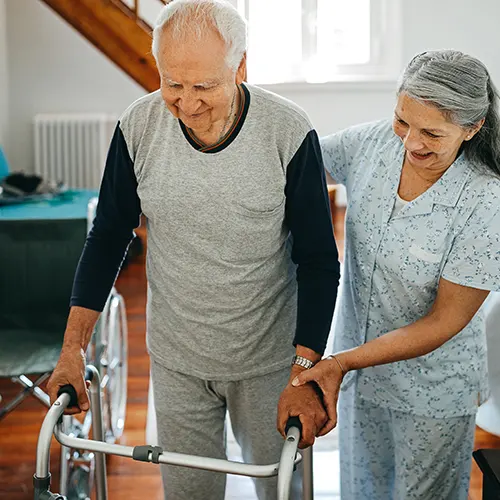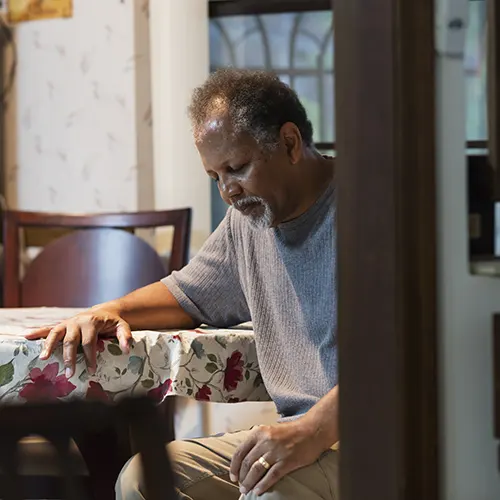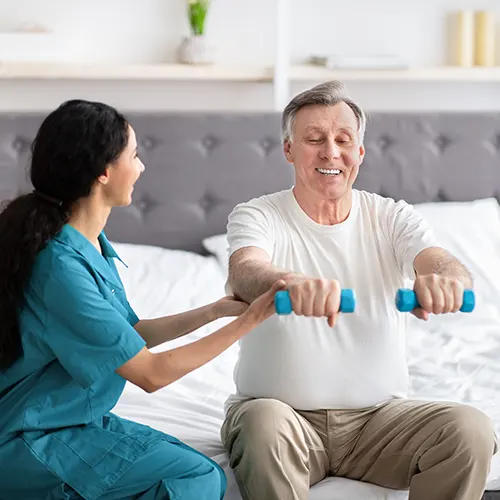We’re bringing better care to our Medicare Advantage patients
Experience health
care as it should be.
Diagnostic Clinic Medical Group has been serving the greater St. Pete community for more than 25 years. As part of our commitment to helping people achieve better health and in partnership with Sanitas Medical Center, we're excited to welcome our Medicare Advantage patients to our new and enhanced Largo location on the 6th floor created exclusively for them.
Here, you're not just another patient. Caring for your health is our #1 priority. We treat you like family so you can enjoy your family and focus on living your best life.
One place for your health care needs
We provide everything to support your health and well-being. From walk-in services, pharmacy, testing and x-rays, mental health, pain support, social health, cooking classes and more, we have everything you need—all under one roof.
Personalized approach to your care
Everyone's health needs are different. Our doctors and care teams are responsible for fewer patients than a typical PCP so they can focus on meeting your unique needs. More time with them means less is missed, helping you age healthy.
We make it easy for you
Need a ride to your appointment? We'll get you here and back safely. Something "feels off" in the middle of the night? Get virtual care 24/7 on the mySanitas app, operated by Sanitas. Need a referral? We'll coordinate everything and do the paperwork for you. Need extra help at home? We'll help arrange it.
Designed with you in mind
We are a doctor's office dedicated to helping you live better and longer. Our state-of-the art medical center is welcoming and calming, designed to promote community and support your overall well-being. Tour our center or join us for one of our many health and wellness events.
50% more time spent with patients | 94% satisfaction rating | 100% love working here, and taking care of you

Your personal care team is all of the specialist and health care providers that help support you on your health and wellness journey. Think of your doctors as the team quarterback. They are supported by nurses, medical assistants and care coordinators. Your doctor will bring in specialists, behavioral/mental health professionals, nutritionists, licensed clinical social workers, and community health specialists based on your unique needs.
As often as you need to. We like to see our older patients several times a year—monthly even. More time with us means less is missed. And with longer appointments, you won't be rushed. We make sure all your questions are answered.
Yes. Most routine blood work, urinalysis, and other diagnostic tests are performed using our in-house lab so you don't have to run all over town and we get answers faster.
Most common medications are available in our on-site pharmacy. If you do have to go somewhere else, we'll work with you to find the most cost-effective and efficient option possible.
We can help with that! Just let your personal care coordinator know ahead of your visit so we can arrange to get you to and from your appointment at our medical center safely.
Administrative services provided by Sanitas USA, Inc. Patient clinical care services provided by GuideWell-Sanitas I, LLC. Employees and licensed healthcare professionals of service providers are neither held nor managed by Diagnostic Clinic Medical Group, Inc., an affiliate of GuideWell Mutual Holding Corporation. © 2023 GuideWell. All rights reserved.






